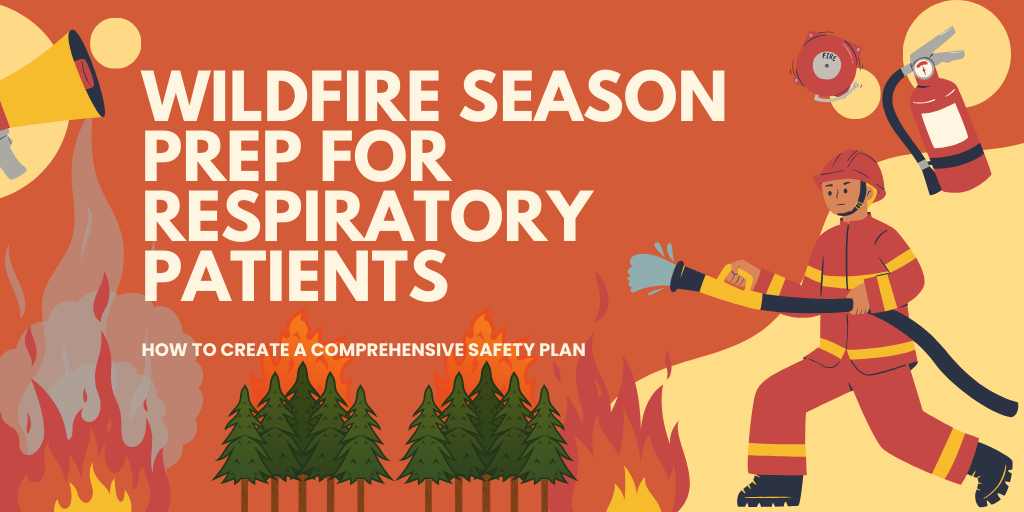Though sleeping is such a miracle to our lives, restoring our energy and our bodies overnight, it can also cause us problems throughout the day.
If we don’t get enough sleep, we can end up being slow and lack energy, or if we get too much sleep we may still end up being slow, if not tired.
Not having a good night sleep can affect you for the rest of the day, making it hard to do whatever tasks are needed to get done during the day.
Either too much sleep, or not enough, your body can react the next day according to how successful your sleep was.
Accessory Muscles
A main issue for sleeping with COPD is some of your muscles in and around your lungs (these are part of a group of muscles called accessory muscles) can become paralyzed in your sleep, making it hard to breathe.
Individuals without COPD are okay throughout the night when their accessory muscles become paralyzed.
These accessory muscles assist us with breathing when we are breathing more intense, versus when we are at rest.
Our body turns off/paralyzes these muscles during our REM sleep, so we do not physically act our dreams out.
Those with COPD normally use these accessory muscles during intense and resting breathing.
This paralyzation of the accessory muscles can make it hard to breathe at night, causing carbon dioxide to remain in the lungs and not enough oxygen to be taken in with each breath.
Avoiding Stimulants
Too much caffeine, alcohol or cigarettes can also mess up your sleep schedule, as they are all stimulants.
Stimulants can not only be unhealthy and dangerous for you, they can be detrimental to your sleep.
Stimulants can trigger a reaction in your brain hours after it is consumed, meaning a glass of wine at 8:30 pm can wake you up at 10 pm.
It is important to find a healthy and safe alternative solution to help you sleep through the night.
Most importantly, speaking with your health team to find the best solution to your sleeping problem can make your sleeping habits and your overall sleep change for the better.
Some over the counter or prescription sleep medications can impair the ability to breathe of induce acid reflux, waking the patient in the middle of the night.
There are a few different ways to help get a successful nights sleep with COPD, sleeping positions, your daily routine and your medications can all be factors.
Starting with your sleeping position, laying more upright can open your airways and make it easier to breathe overnight.
Ways to Improve Your Sleep:
Sleeping Position:
Your sleeping position is an important part of having a successful night of sleep.
If you have a reclining chair that you feel is comfortable enough to sleep in, sleeping slightly reclined can make it easier to breathe throughout the night rather than sleeping in bed with a handful of pillows.
This can give your lungs a better angle to breathe as lying flat can close your airways, making it harder to breathe through the night.
If laying more upright, essentially sitting, is not comfortable for you, you have the option to lay on your side.
If you prefer to sleep in a bed, sleeping with a few extra pillows under your head can help with breathing through the night.
Laying on your side, with your head propped up, will open your airways as well.
The idea for open airways would be to have your lungs, throat and mouth all line up to make a straight path for the air.
Too many pillows, or too little pillows can cause a “kink in the hose” if you are not careful.
Your head should be propped up but you should not feel like you have a lot of tension in your neck.
Making sure that you are comfortable is also very important, as if you aren’t, you will be up all night.
Daily Routine:
Maintaining a healthy daily routine can help you sleep longer and better.
Avoiding unhealthy, sugary foods can not only help you stay energized but can keep you from staying up all night.
Exercise is also very important, as it can help tire you out and help you fall asleep and stay asleep throughout the night.
Just make sure to exercise during the day and not before bed. Exercise wakes your body up and gives you energy right away.
Its best to exercise in the morning as it can help wake you up for the day.
It is also important to avoid caffeine, alcohol and cigarettes, as all three can become a stimulant, even hours after consumed.
Drinking at night may make it seem like you will get a better nights sleep, but it can end up waking you in the middle of the night.
Naps should be avoided throughout the day, even though it may seem to be helpful, it can affect your level of tiredness towards the end of the day.
Keep your bedroom dark, as any light emitted into the room can prevent you from falling asleep successfully, and staying asleep.
Medications:
Not only are medications prescribed by your doctor important, but sleeping medication can be helpful to have a good night's sleep as well.
Check with your doctor to make sure all non-sleeping medications you are on will not affect your sleep.
You can also look into prescription sleep medication as many over the counter sleeping medications can affect your COPD.
Inhalers can also be beneficial to those with COPD, as it can open your lungs for up to 24 hours.
This will help you sleep through the night and not have to worry about waking up because you are struggling to breathe.
CPAPs and BiPAPs can also be a component to a successful nights sleep, as they can keep a constant pressurized flow of oxygen throughout the night.
Both CPAPs and BiPAPs would be prescribed if a sleep study is performed and it is deemed the patient needs help breathing overnight.
Many medications, in different forms, can help you have a long and successful night of sleep.
Conclusion:
Though it may seem like sleeping is impossible to do with COPD, there are a handful of ways to make it easier.
Not every solution will work for you, but there may be one or two that can help you fall asleep and stay asleep.
Your doctor is also a great resource to getting a long, needed night of sleep. Speaking to your doctor can provide you with options you may not have thought of or tried yet.









